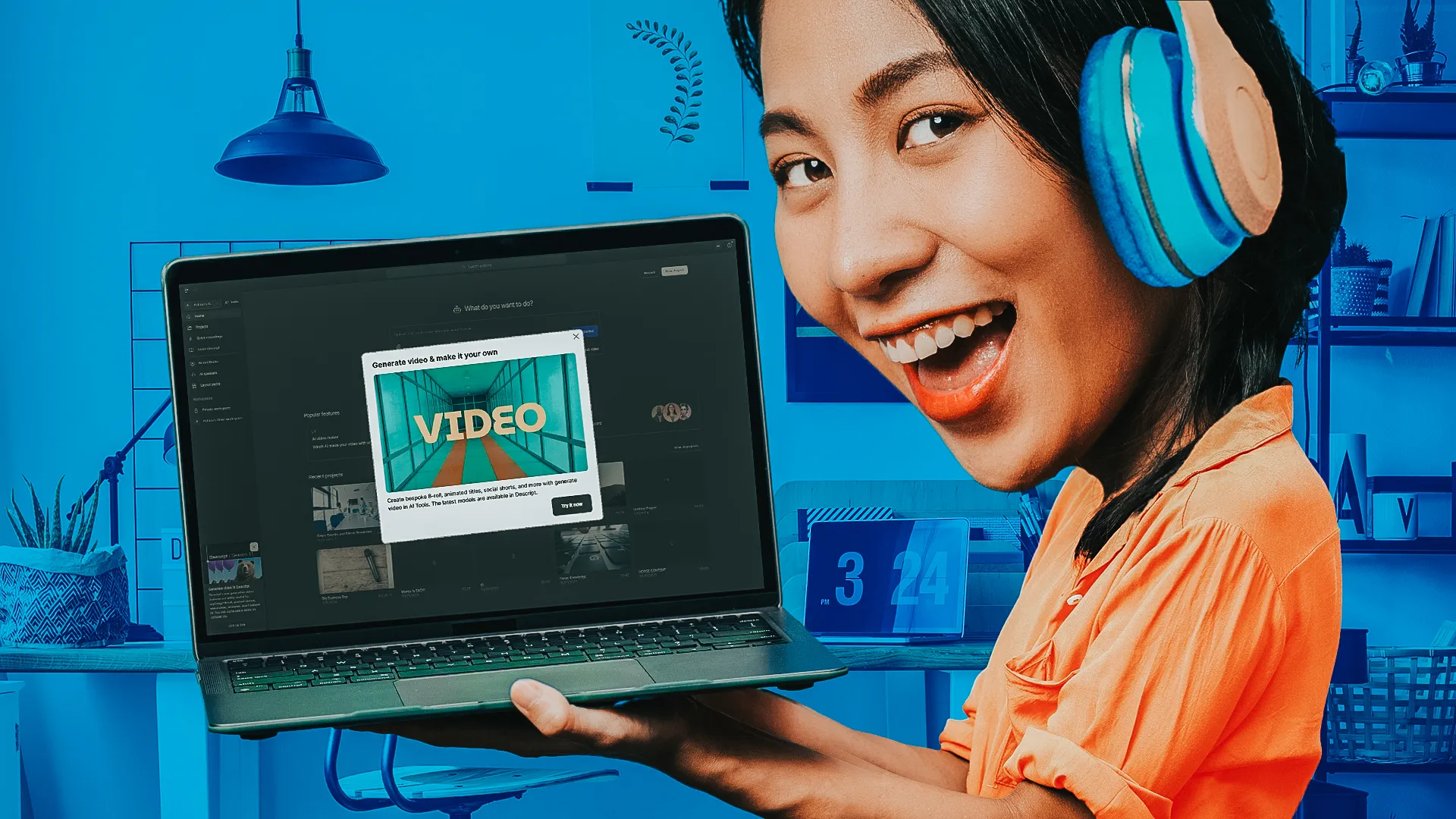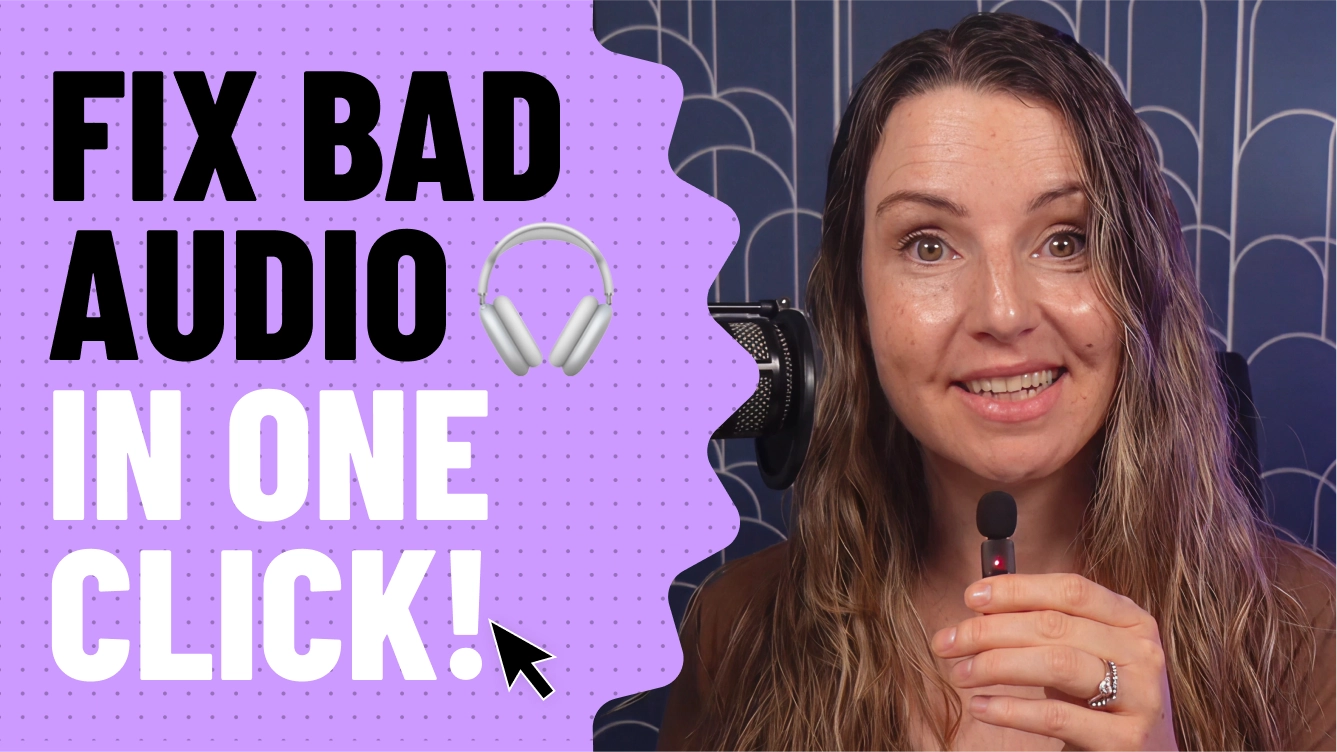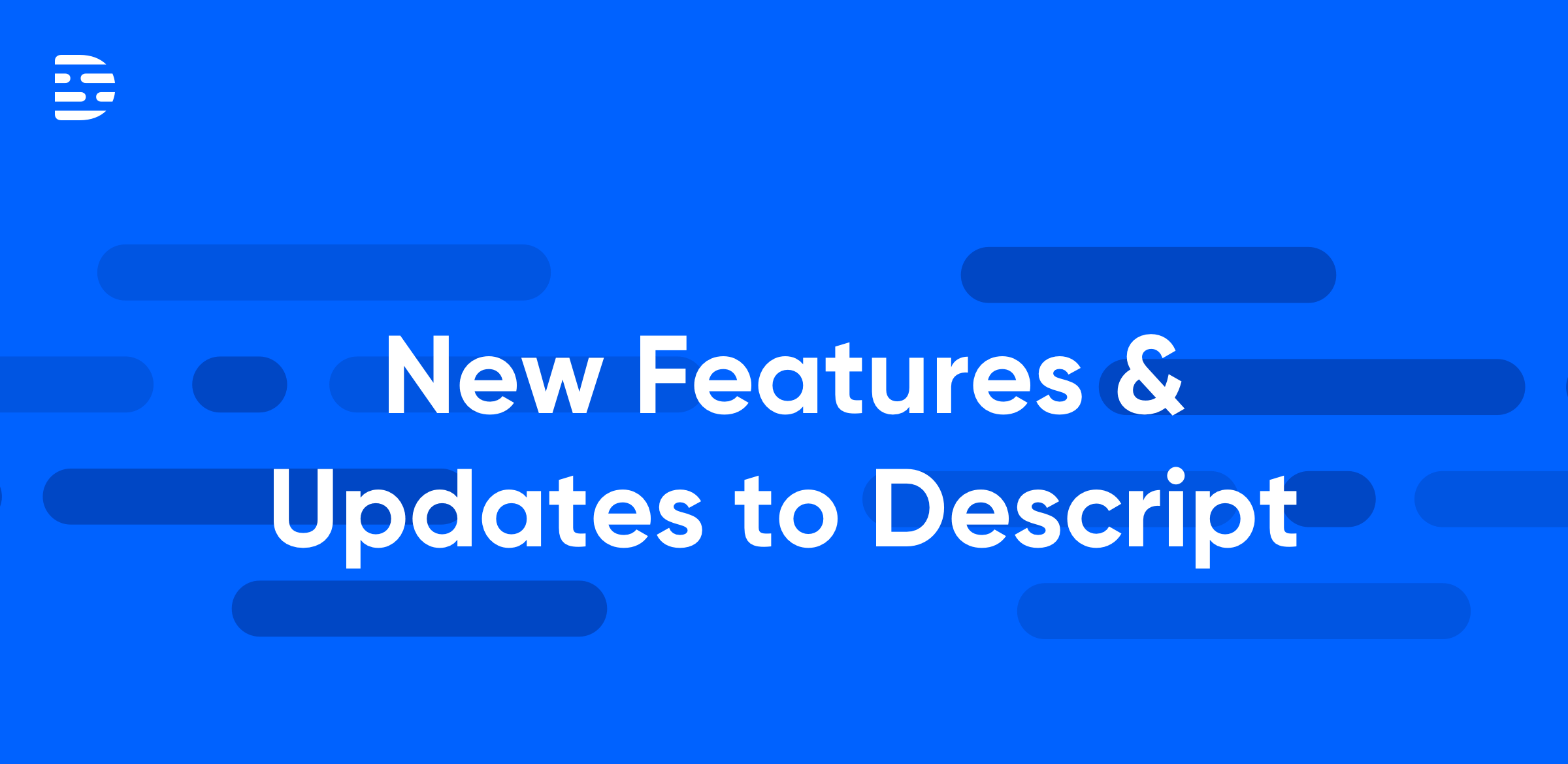You’ve spent hours writing your podcast script, recording your voiceover, and editing your show in your podcast editor of choice. Before you hit publish, there’s one final thing to consider: music.
Music is a key (and often underestimated) part of starting any podcast. It has the power to change your listeners’ mood, keep them engaged, and add personality to your podcast—three components of a chart-topping show. The problem is: you can’t dump any old song into your podcast. You need to check the license of the song before using it legally.
This guide shares how to use free podcast music, the types of licenses you should be aware of, and nine royalty-free music libraries you can use to find the perfect track.
Where to use royalty-free music for your podcasts
Unsure where to use music in your show? Here are three popular spots where content creators tend to use music in their podcasts.
Podcast intro and outro music
The first and final parts of your podcast are often underused. But when you put thought into the listening experiences of both segments, you could increase audience retention and even get listeners to support your podcast monetarily.
Take your podcast introduction, for example—a place to welcome new listeners and give context to your show. Podcast intro music, a custom jingle, or a theme song that matches the mood of your show could help set the scene. Within a few seconds, listeners know they want to stick around. The music has them hooked.
Similarly, the end of your podcast is a chance to keep people in your sphere of influence. Do you want listeners to leave a review for your show? Subscribe to it in their podcast player of choice? Help you monetize the show by buying merch? Music in your podcast outro could give the listening experience that convinces them to take notice… rather than dive straight into another podcast.
Transitions and segues
Creators often divide a podcast episode into segments. It keeps the show fun and engaging throughout, while also exploring different topics within a single episode.
Help listeners understand when the context is shifting with transition music. Whether you’re moving from the podcast intro or segueing from an interview to a summary, this type of music helps keep listeners in the loop. People know exactly what to expect next.
🏡 Find a home for your show: The 10 best podcast hosting platforms
Interview or dialogue enhancement
Words aren’t always enough to keep listeners engaged—especially if they’re tuning into a lengthy episode. Music can help retain your audience’s attention and add extra context to your story.
Let’s put that into practice and say you’re retelling the story of how you met someone who changed your life in a coffee shop. You want to give your listener the same experience you had, so when you’re opening the door to a coffee shop in your script, you add a sound effect to imitate the door opening. Once you’re inside, the rest of the episode has a soft crowd murmur beneath your voiceover to replicate the natural ambience of a coffee shop.
Types of music you’re allowed to have in podcasts
Once you’ve got an idea of where you plan to use music, it’s time to find royalty-free tracks you’re legally allowed to use in your podcast. Those music tracks typically fall under one of these three categories.
Creative Commons music
Creative Commons (CC) is a type of license that allows creators to use premium music, as long as you follow the specific terms of the license. There are six different types of CC license, but using a song in your podcast typically requires you to include the following things in your podcast show notes:
- Credit to the original artist
- The name of the track
- That it’s licensed under Creative Commons
Since there are a few different Creative Commons licenses, there may be limitations on who can use an individual track. Some licenses state that you can’t use licensed sound for commercial purposes, so if you’re making money from your show or hosting a business podcast, check whether the CC license allows it.
🎧 Syndicate your podcast: How to upload a podcast to Spotify in 4 easy steps
Royalty-free music
If a track isn’t royalty-free, you’d need to pay a royalty fee each time the music is played. If you have thousands of people listening to a single episode, those royalties would quickly get expensive—hence why you should always check whether the music is royalty-free before using it in your podcast. You can do this by checking the PDINFO register.
Public domain music
Generally speaking, if the song you want to use was released in the US before 1928, it’s in the public domain and available to use in your podcast without any legal obligations.
If you want to use newer copyrighted music in your podcast, you’ll likely have to wait 70 years after the original artist of the song passes away. That’s when the track comes into the public domain and the music is free for anyone to use. Otherwise, you’d need to pay the licensing fee to use the music in your show.
Top 9 places to find copyright-free music for podcasts
- Descript
- YouTube Audio Library
- Free Music Archive
- Incompetech
- PremiumBeat
- Pixabay Music
- Freebeats.io
- Epidemic Sound
- Audiojungle
1. Descript
Best for: Creators who want to add royalty-free music without leaving their podcast editor.

Descript is a podcast editing suite for creators of all sizes. Alongside tools to record and edit your podcast (similar to how you’d edit a Google Doc), you can browse from a built-in library of royalty-free stock music—all of which are free for creators to use on their podcast.
With Descript, you can trial different sounds before committing to a track. If you’re looking for background music for your podcast intro, simply click one of the options and listen to how it sounds. If you don’t like it, head back to the library and choose another. There’s no need to download different royalty-free songs, upload them to your editor, and repeat the process again if you don’t like it.
You’ll also get unlimited access to a bunch of other artificial intelligence (AI) tools to help you produce a chart-topping show in record speed, such as:
- Automated transcripts with more than 95% accuracy
- Overdub to fix audio mistakes with a clone of your voice
- Studio Sound to remove unwanted background noise
- Show notes and YouTube description generator
- Ask AI to brainstorm new podcast topics or ideas
Pricing: Royalty-free music (with no attribution required) is included in all Descript plans as standard. Get started for free today.
2. YouTube Audio Library
Best for: Creators publishing a video podcast on YouTube.
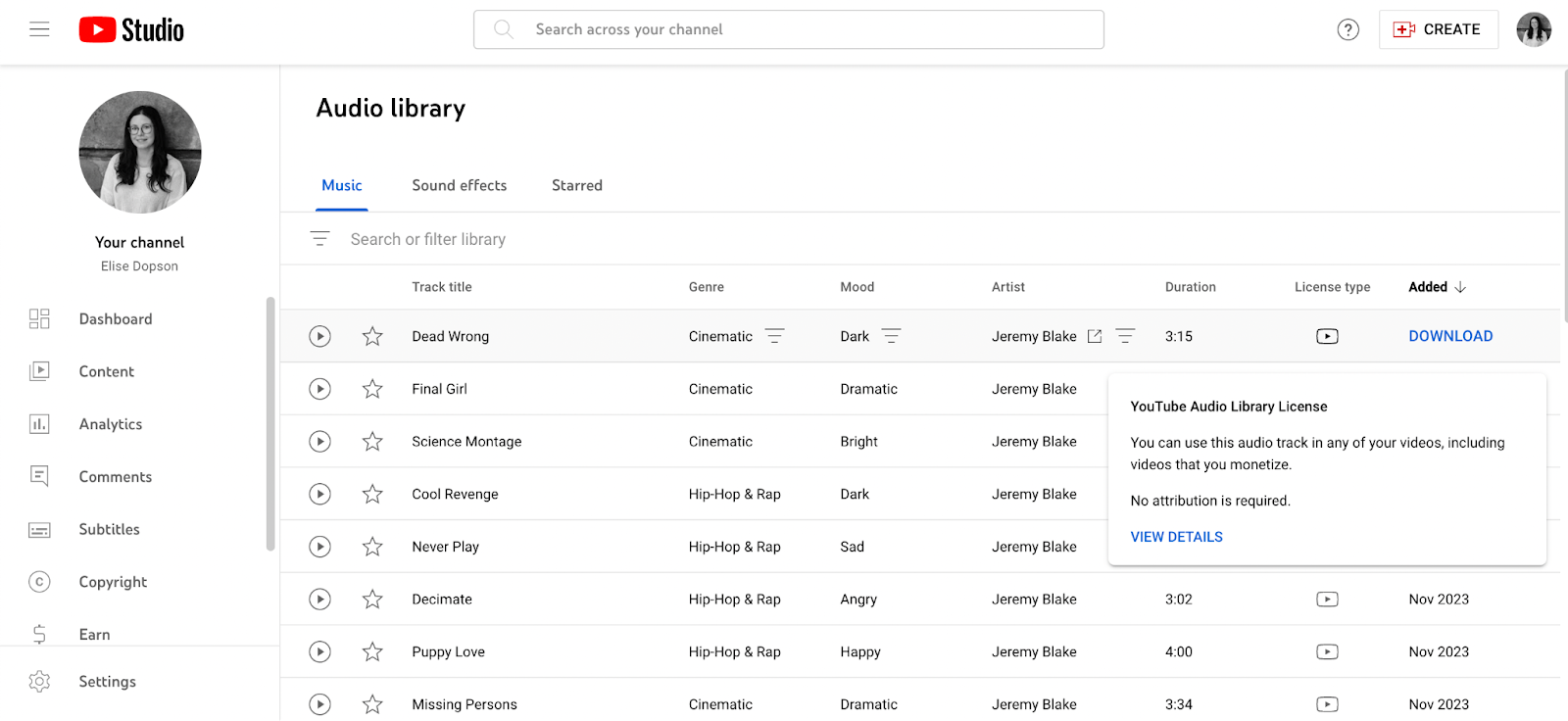
YouTube is the world’s biggest video sharing platform, so it makes sense that it offers a range of royalty-free music for creators to use in their YouTube videos.
As part of the Creator Studio, anyone with a YouTube channel can use the audio library to:
- Switch between music and sound effects
- Filter royalty-free music by genre, mood, artist, and duration
- See the music licensing information—including whether you need to give attribution when using the sound in your video podcast
- Curate your own sound library and save music for later using the “star” feature
Once you’ve found the perfect track, download the MP3 audio file to your computer, then upload it to your podcast editor to include it in your show.
Pricing: Free, though some songs require attribution.
3. Free Music Archive
Best for: Royalty-free music from indie creators.
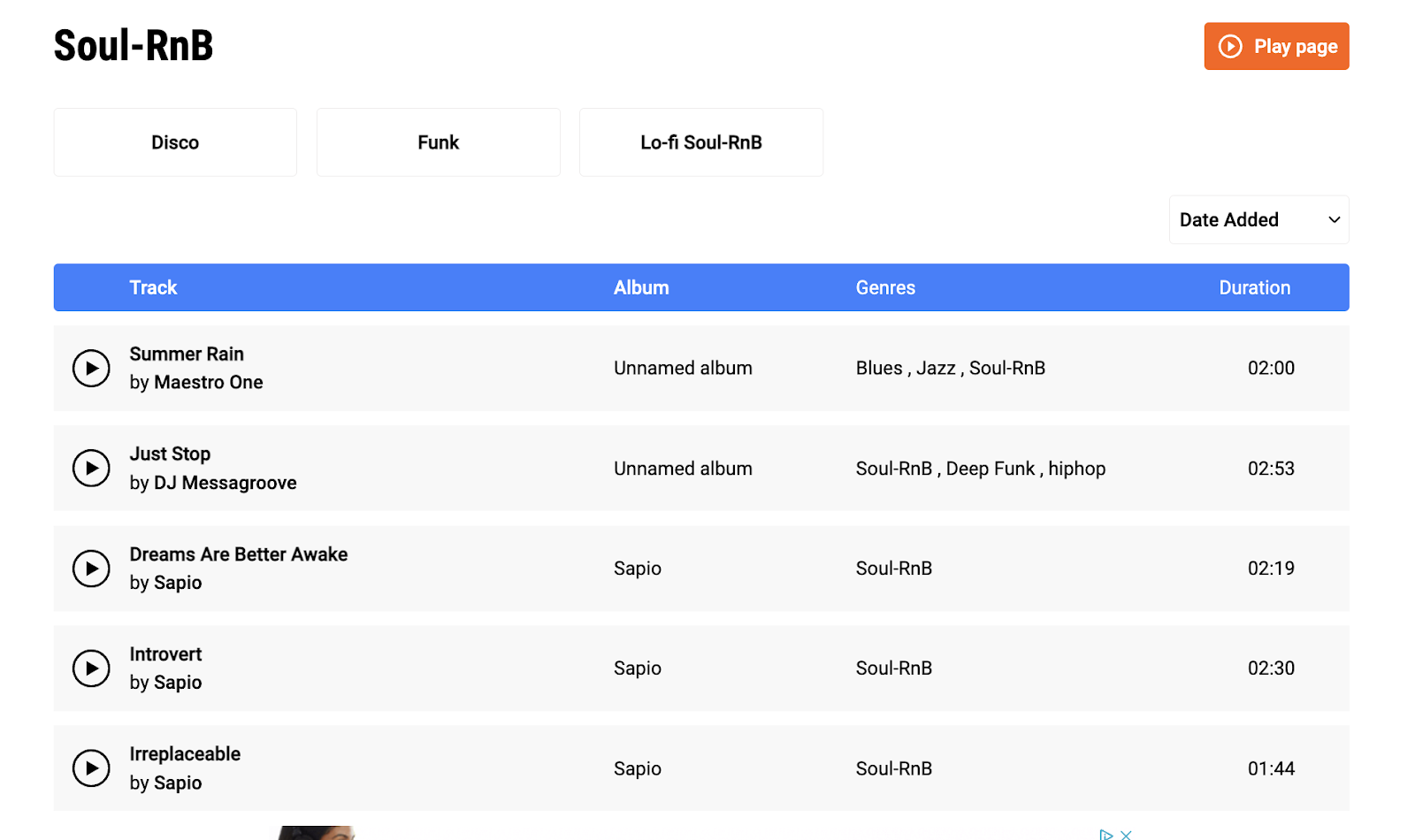
Free Music Archive is an online directory of songs you can use in your podcast. Artists upload their music to the platform under the Creative Commons license, so depending on the track you choose, you might have to give credit to the original creator in your show notes.
Any podcaster can use Free Music Archive to:
- Browse genres like hip-hop, instrumental, and electronic music
- Choose playlists to discover premade music mixes
- Learn more about the artist behind a song with their creator biography and discography
- See which Creative Commons license a particular song has
Pricing: Free, though some songs require attribution.
4. Incompetech
Best for: Downloading a library of royalty-free music to use offline.
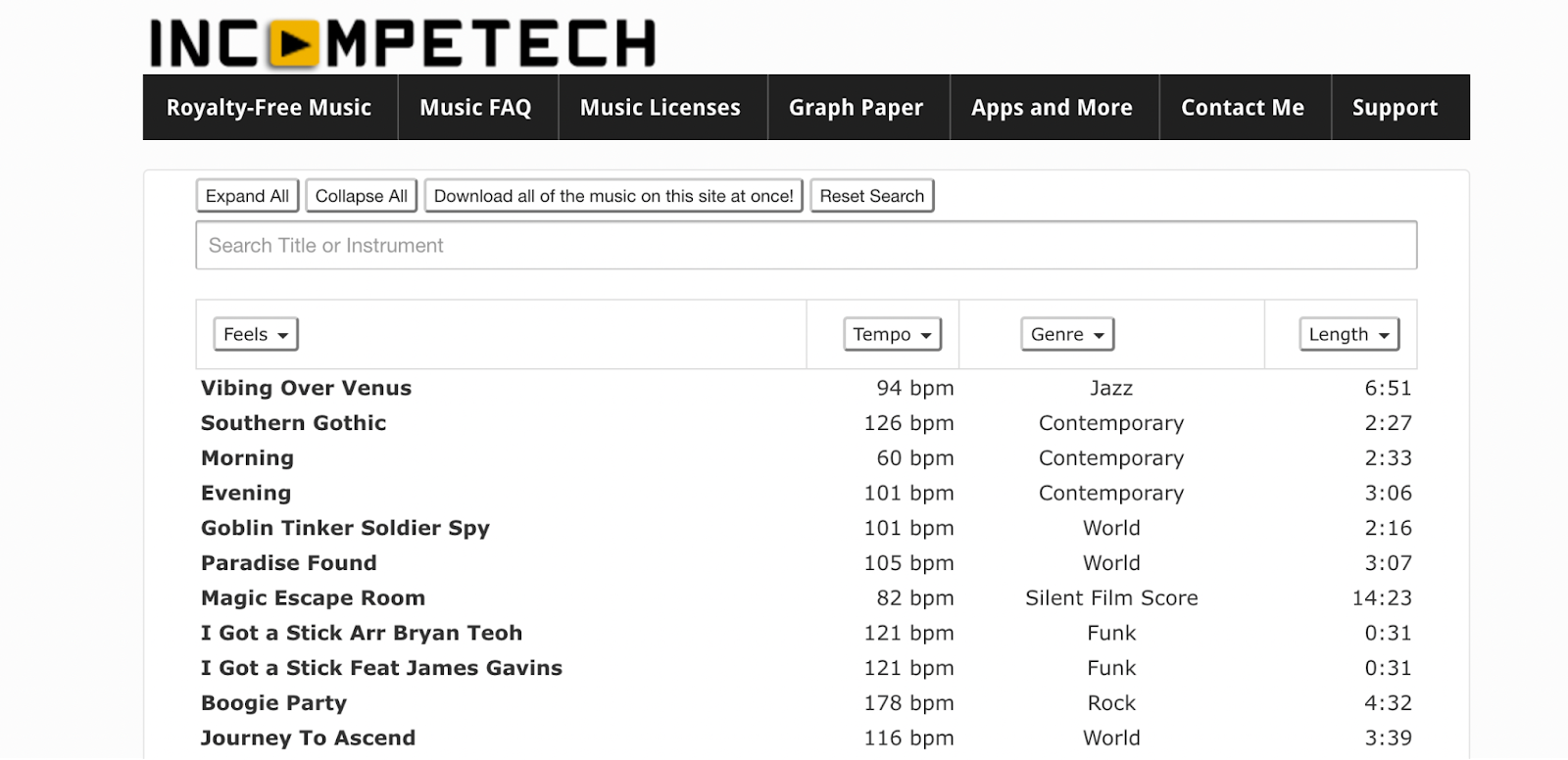
Incompetech is a royalty-free music site created by composer and producer Kevin MacLeod. The website’s interface is a little outdated, but you can find some hidden gems if you have enough patience to sift through the royalty-free tracks listed on the website.
Songs in this free music library are licensed under Creative Commons. The site has a nifty attribution section you can copy into your show notes and stay compliant with copyright laws.
Key things you need to know when sourcing music through Incompetech is:
- You can filter sounds by feels, tempo, genre, and length
- Choose to download the entire library in bulk—great if you often edit podcasts without an internet connection
- You must copy and paste the song’s attribution (required under the CC license) in your podcast show notes or video description
Pricing: Free, but you need to give credit when using a song in your podcast.
5. PremiumBeat
Best for: High-quality music with one-time fees and lifetime use.
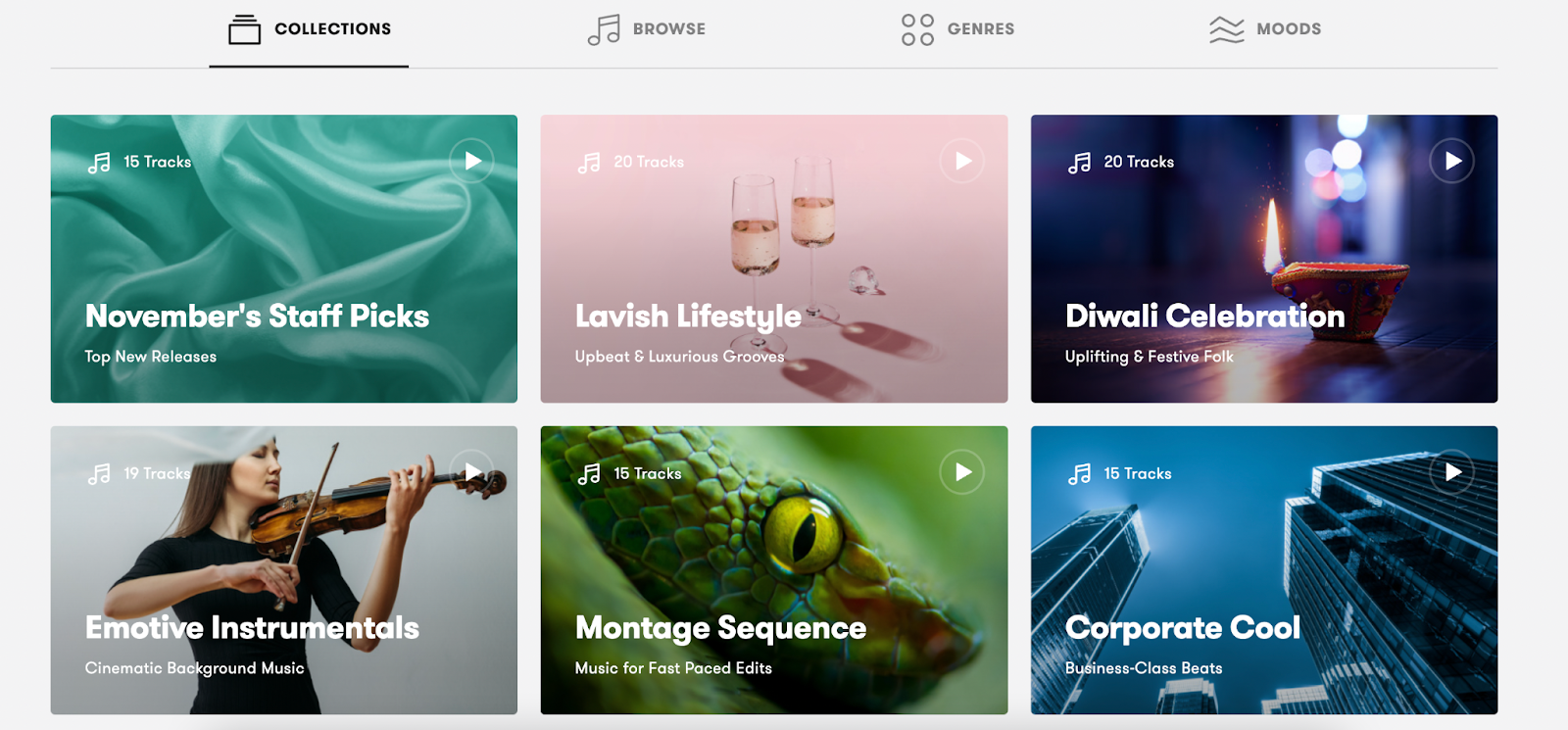
PremiumBeat has been in the royalty-free music industry for a long time (since 2005 to be exact). Now, it’s one of the most popular websites for creators to discover royalty-free music they can use in their podcasts and video content.
The best things about PremiumBeat are that you can:
- Search royalty-free music using descriptive words such as “quirky” or “inspiring”
- Browse sounds by genre, mood, or duration
- Add context to your podcast episode with royalty-free sound effects
Pricing: Licenses for a single sound average at around $49, but you get better value for money with PremiumBeat’s subscription model. You can download five individual tracks for $64.95 each month. Use these songs as many times as you like.
6. Pixabay Music
Best for: Discovering new royalty-free music with curated playlists.
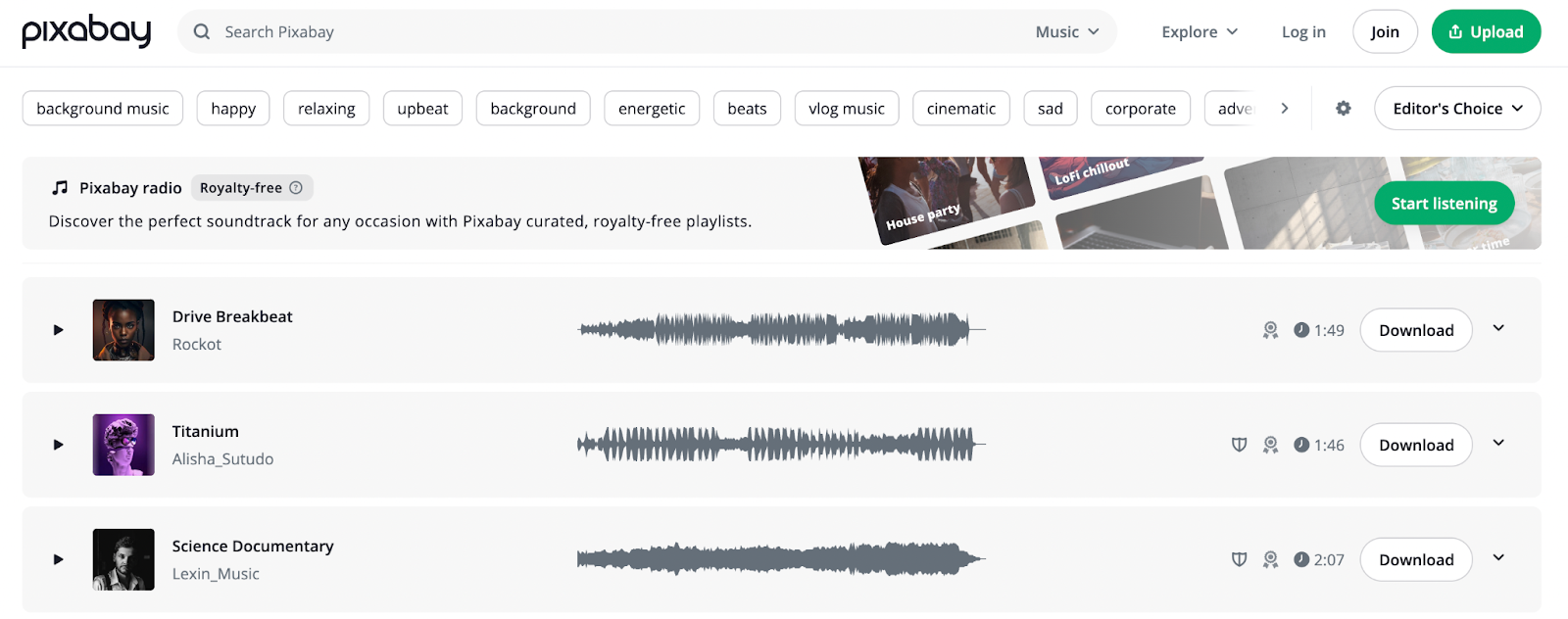
Pixabay is a legacy brand mostly known for its library of royalty-free images. Since its creation in 2010, Pixabay has introduced music and sound effects for creators to add ambience and personality to their content.
Add Pixabay Music to your shortlist if the following features are important to you:
- Curated radio feature to discover new songs to use in your podcast
- Option to hide music created by artificial intelligence if you’d rather support human artists
- You don’t need to credit the original producer when using Pixabay music for your show
Pricing: Free with no attribution required.
7. Freebeats.io
Best for: Rap, hip-hop, and club royalty free music.
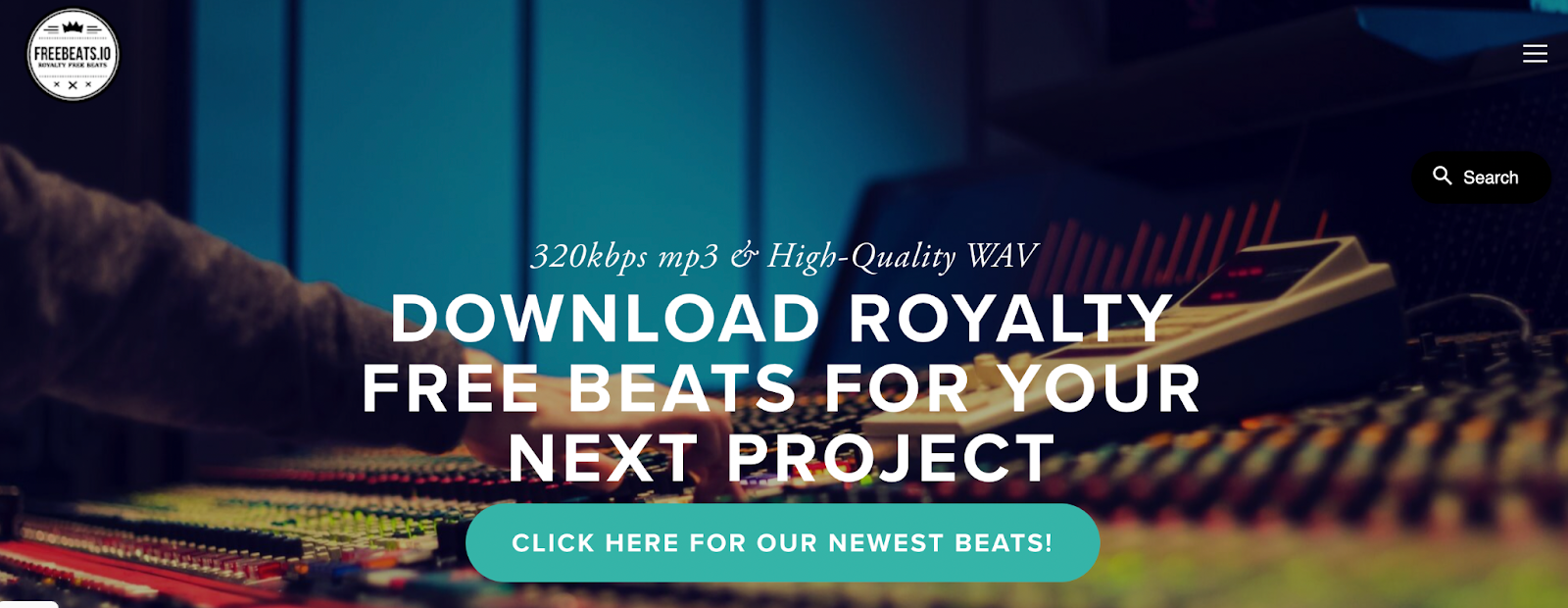
As the name suggests, Freebeats.io is a free music website with an interesting business model. Anyone can use their royalty-free music. The only catch: you must follow the brand on social media and give them credit anytime you use their music.
This free music library predominantly contains tracks made by Canadian producer Hot in the rap, hip-hop, and club music niches. If that suits the vibe and tone of your podcast, use Freebeats.io to:
- Download audio files in 320kbps MP3 format
- Find royalty-free music to use in your podcast by giving Freebeats.io attribution
- Get sound in WAV file format if you become a member of Freebeats.io
Pricing: Free—but you must follow Freebeats.io on social media and include credit in your podcast show notes.
8. Epidemic Sound
Best for: Creators who want unlimited music and sound effects in a monthly subscription.
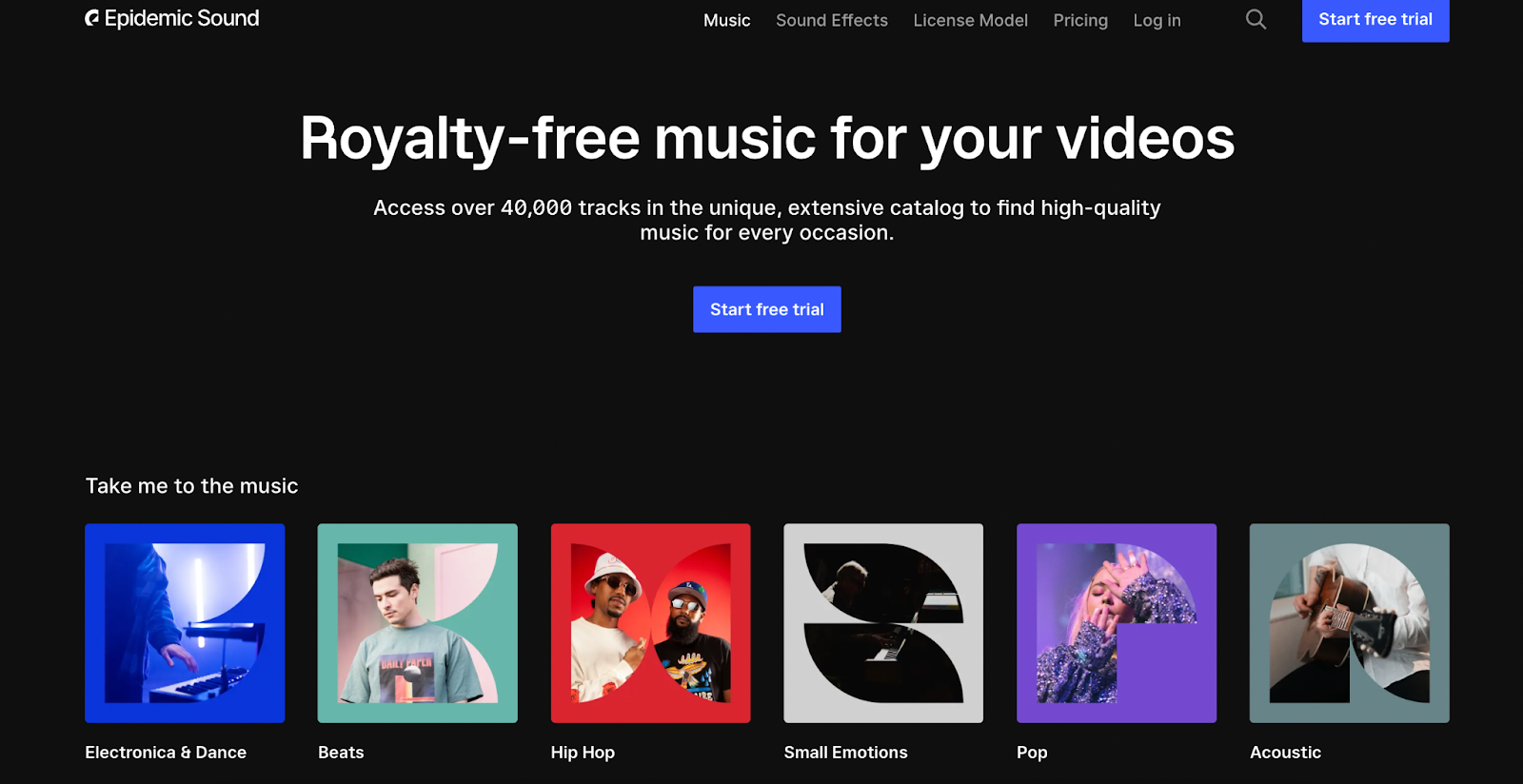
Epidemic Sound is a royalty-free music site designed for video creators. It has over 40,000 tracks and 90,000 different sound effects all in a monthly subscription. As long as your subscription is active, you can download as many royalty-free sounds as you like.
Other standout features of Epidemic Sound include:
- Unlimited downloads and use with a set monthly subscription
- Easy-to-understand licensing—all sounds are copyright-free
- Find pre-approved royalty free music to live stream your podcast on Twitch, YouTube, or Facebook
Pricing: Monthly subscription plans start at $9.99 per month. This includes unlimited access to all music and sound effects. There is a 30-day free trial available.
9. Audiojungle
Best for: Finding premium and rarely-used sounds.
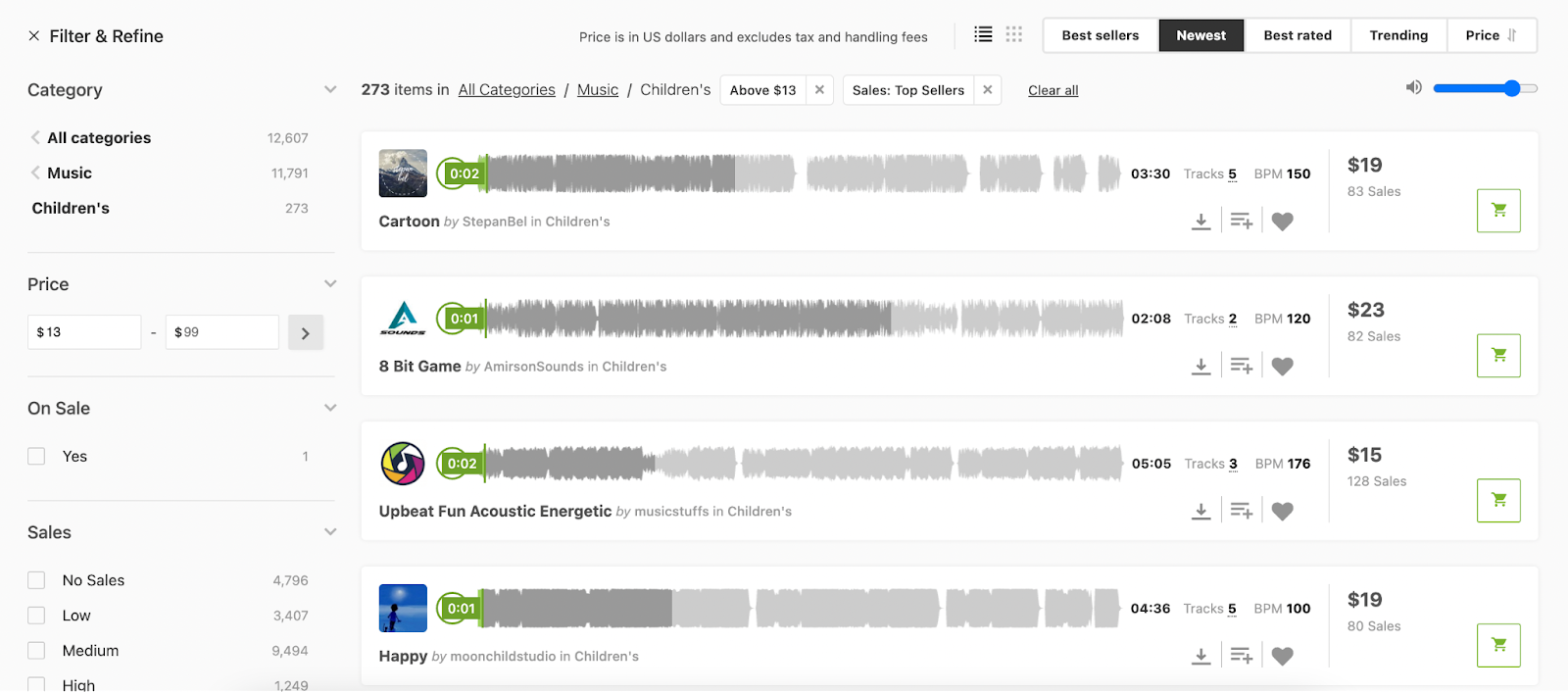
Audiojungle is a popular place for podcasters to find royalty-free music. It’s powered by Envato Market—an online marketplace for creators to sell their own digital products, including music and sound effects.
You can’t find free music on Audiojungle, but songs start at just $5. It has a great music library to discover hidden gems that aren’t overused by podcasters who rely on free options.
Audiojungle stands out because it allows podcasters to:
- Find tracks with or without vocals
- Purchase audio packs—long files with different tunes you can trim
- Filter royalty-free music by the tempo (beats per minute) to find a song that suits the ambience of your podcast segment
Pricing: The price of a royalty-free sound depends on the creator. This can range from $5 to $59.
3 myths about copyrighted music
There are a lot of misconceptions about using copyrighted music in podcasts. Let’s bust three of the most common myths so you can keep your podcast on the right side of the law.
1. Podcasts are exempt from copyright laws
One of the most common myths is that podcasts are considered educational and non-commercial, so they are exempt from copyright laws. It doesn’t matter how you use copyrighted music—it’s the music that is protected by a license, not the content.
Copyrighted music is owned by the producer, record label, or artist. This means you need a special license to use the sound in your podcast—unless it’s distributed under a Creative Commons or royalty-free license.
2. Using a few seconds of a copyrighted song is okay
Music is protected in its entirety. Even if you only clip a few seconds of a copyrighted song to use in your podcast, you’ll still need to pay the licensing fee to use it legally.
3. Giving credit to the artist or source makes it legal
Copyright is about ownership, so even if you give credit to the original artist or producer, you don’t have the rights to use a copyrighted track in your podcast.
That said, some tracks licensed under Creative Commons require you to give credit to the original artist—either in your script or the podcast show notes—if you’re using it in your podcast. Check the licensing information beforehand.
Elevate your podcasting game with Descript
Royalty-free music is only part of the equation when producing a successful podcast. The way you edit your show has a lasting impact on listeners’ likelihood of tuning in every time a new episode launches.
Thousands of the world’s top podcasters use Descript’s podcasting tools to:
- Get an automatic transcript with <95% accuracy
- Edit podcast episodes like you’d edit a Google Doc
- Add royalty-free music from the same podcast editing dashboard
- Remove background noise and produce professional-grade audio
- Use artificial intelligence tools to speed up the podcast production workflow
Descript is used by the world’s top creators for good reason. Take a free tour today and see why.
Royalty-free music FAQs
Can I use royalty-free music on podcasts?
You can use podcast music as long as the track is royalty-free. Otherwise, you’d need to pay licensing fees to the owner of the song (which can be expensive).
Can you use Pixabay Music for podcasts?
Pixabay Music has thousands of royalty-free tracks you can use in your podcast for free. Unlike music under the Creative Commons license, there’s no need to credit the original artist when you source music through Pixabay.
How do I know if my music is royalty-free?
- Use PDINFO to see if it’s in the public domain
- Check the copyright register
- Look for a Creative Commons disclaimer
- Search for it on a royalty-free music site
- Upload it to YouTube and use the Checks feature
What is the difference between royalty-free and Creative Commons music?
If a song is royalty-free, you can use the music without giving credit to the original artist. But if the song is licensed under Creative Commons, you’ll need to credit the producer in your podcast show notes or video description.
























